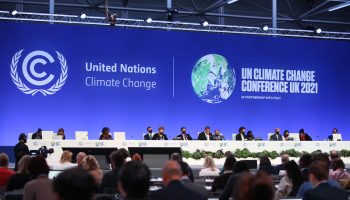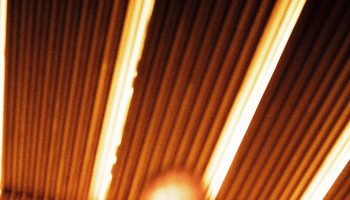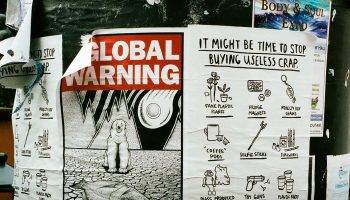Tony Abbott, as we are by now all aware, considers the ABC unpatriotic. The ABC is likely to pay for this displeasure with budget cuts and the loss of their Asia-Pacific contract. But in the Republic of Turkey, another secular and First World democracy, the punishment for a lack of patriotism can be far more severe.
Turkey is the world’s leading jailer of journalists. China, Egypt and Russia all fall far behind, and the country’s overall press freedom is rated behind that of Mali and Afghanistan. But to us, in Australia, the most important aspect of the Turkish republic’s troubled relationship with the free press is the warning it provides: that even our democratic institutions can be twisted to silence us and entrench those in power. And that it’s not partisan to be suspicious of a Prime Minister who speaks as if they and the state are synonymous.
The evidence for this can be seen in the infamous Article 301 of the Turkish penal code, which criminalises “public denigration of the Turkish nation, the Republic or the Grand National Assembly” as well as “public denigration of the Government of the Republic of Turkey”. In essence, Article 301 acts as the formal enforcement of patriotism amongst Turkish journalists as well as the citizenry at large. The results, unfortunately, are all too predictable: not content with prosecuting flag-burners and their ilk, the laws are now used to stifle any expression which could be seen to “denigrate” the state and its government.
Notable figures charged under Article 301 include Nobel-laureate Orhan Pamuk for writing about the Armenian genocide, Armenian activist Hrant Dink who was later assassinated by someone with ties to a military cabal and the writers’ group PEN, for calling the arrest of a Turkish pianist who ‘insult[ed] religious values’ a “fascist development”. This leads back to the earlier point: when the currently-ruling party considers themselves to be the essence of the nation itself, it is the start of a very dark path where criticism of policy or conduct becomes, in essence, treasonous.
Another aspect of this journalistic repression – and one which has become extremely newsworthy since it recently became the focus of mass purges – is the infiltration of the judiciary and police force by the religious devotees of the Gülen movement. Prime Minister Erdoğan (pronounced, roughly, er-doe-arn) has until this year had a cosy alliance with this Pennsylvania-based Islamist group, and the Gülenists have been able to entrench themselves within the judicial system without resistance. A police officer wrote, frighteningly, that “I have seen how they started to mistake sins for crimes, both inside and outside the force.” That their alliance with Erdoğan has broken down is due to the release of damning evidence of corruption amongst his family and supporters, which many (evidently including the Prime Minister) believe was the work of Gülenists.
What this has meant for the free press, until now, is a hostile and biased judiciary which eliminates vocal critics of the movement. Turkish journalist Ahmet Şık was about to release his findings on the Gülenist infiltration of the police force when he was suddenly arrested, charged with membership of an attempted coup, and his manuscript was destroyed. All of this, despite Şık being the man who had uncovered the coup in the first place. Although the recent animosity and resulting purges should have a positive effect for journalists wishing to report on these issues, Şık himself has said that “The attempt to purge Gülenists doesn’t mean that [Erdoğan] is right… We have massive corruption on the one hand, but the investigation against it also violates democratic and judicial principles. It’s a choice between a rock and a hard place, pest and cholera. One is not better, or cleaner, than the other.”
Again, the lesson for Australia is clear. Turkey is like us: they have the democratic institutions and safeguards that we have. But Turkey shows that when undefended, maligned and left in dishonest hands, these become just as repressive and dangerous as if they had not been there at all. This isn’t some veiled reference to Tony Abbott; I’m not saying that his are the dishonest hands. But I do ask you to be wary of a man who, like Erdoğan, considers criticism “unpatriotic”. Cherish your free media and the dissent it offers, Australia.
Image via wikipedia


